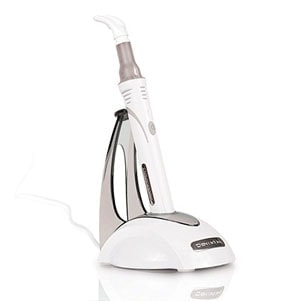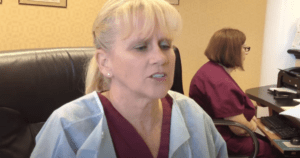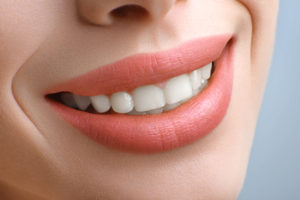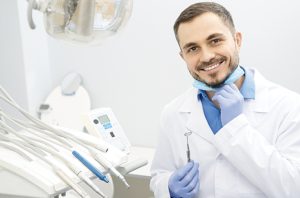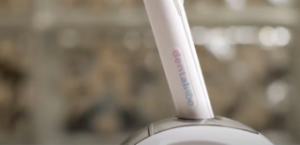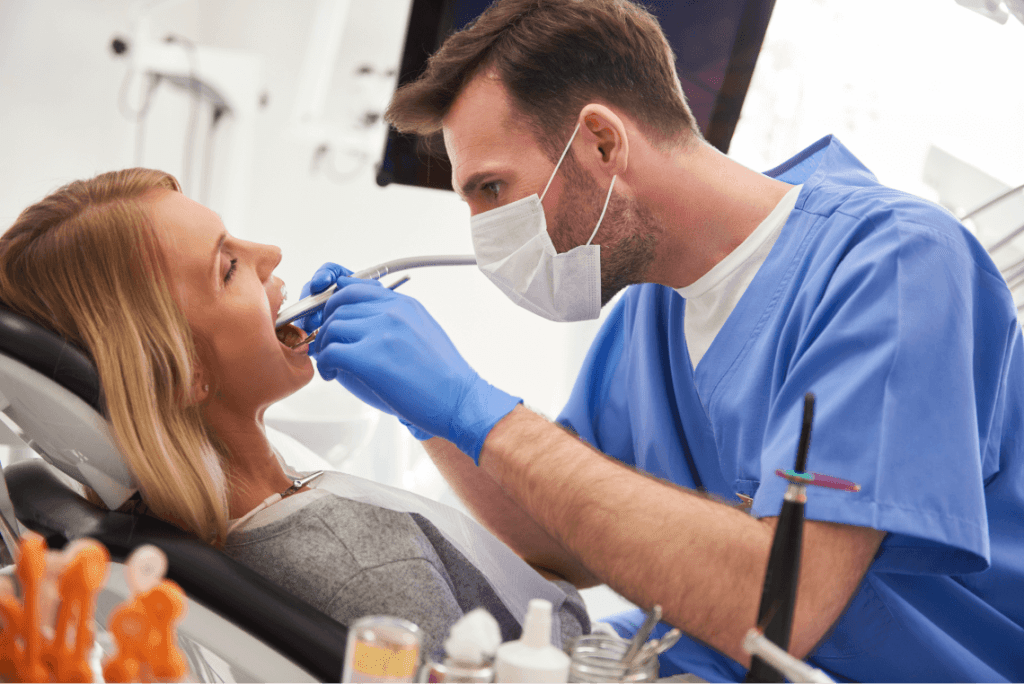Everyone’s experience with wisdom teeth is different. Some people never get them. Some people may only have two or three instead of all four. Some people grow more than four. And a few people get their wisdom teeth and are able to keep them instead of having them removed.
Wisdom teeth – also called third molars – usually begin to grow in between the ages of 17 and 25. These teeth come in at the back of the jaws, on the top and bottom, and in some cases can be beneficial.
While some people experience no complications or concerns related to wisdom teeth, more than 80 percent of Americans will have their wisdom teeth removed at some point in their lives. Regular visits to the dentist can not only help you maintain your overall dental health, but also allows your dental care provider to watch out for early wisdom teeth symptoms and help you avoid issues that may be caused by these molars.
How do you know if your wisdom teeth should be removed?
For many people, there’s a probable chance that their wisdom teeth become impacted. When a wisdom tooth is impacted, or trapped under the gum, it can lead to a whole host of problems, including:
- Crowding of the teeth, which can cause headaches
- Not enough space between teeth to floss, which can lead to more bacterial growth
- The destruction of the roots and bone structure of surrounding teeth
We think it’s safe to say these types of wisdom teeth complications should be avoided at all costs. So what symptoms should you watch for? How do you know if your wisdom teeth are coming in, and when it’s time for them to be removed?
If your wisdom teeth haven’t grown in yet, and you’re between the ages of 17 and 25, it’s a good idea to keep an eye out for any symptoms, and let your dentist know if you notice anything unusual. Even if your wisdom teeth aren’t causing pain or discomfort, they could still be causing damage. Not removing problem wisdom teeth in a timely fashion can lead to oral infection, bone damage, misaligned teeth, headaches, jaw problems and much more.
Even if your wisdom teeth grow in fine, without damage, the potential for these teeth to cause problems still exists, especially as you age. Like any other teeth, wisdom teeth can develop cavities, and tooth decay or tumors in some extreme cases. Because of their position in the back of the mouth, it can be difficult to properly brush and floss between wisdom teeth. Overcrowding can also make it difficult to floss and lead to infections.
Wisdom teeth symptoms to watch for
Pain. It’s normal to experience some discomfort when your wisdom teeth are growing in. If your wisdom teeth are causing pain, however, this means that they’re abnormal in some way. Pain means they’re not in the right position, have become impacted, or are causing some sort of gum disease. By the time you feel pain, it’s probably well past time for your wisdom teeth to be removed.
Headaches. Impacted wisdom teeth can cause overcrowding, and the resulting pressure in the jaw can lead to headaches. Because headaches can also be caused by other factors, this symptom can often go unnoticed. If you begin experiencing headaches more frequently than usual, talk to your dentist about wisdom teeth removal.
Additional symptoms to watch for include:
- Gum swelling, sensitivity, or bleeding
- Difficulty eating or pain while eating
- Difficulty opening your mouth
- Jaw pain or stiffness
If you experience any of these symptoms and have never had your wisdom teeth removed, schedule an appointment with your dentist.
What happens if I don’t have my wisdom teeth removed?
If your wisdom teeth are causing problems and you don’t have them removed, it could lead to further dental issues, including bacterial infections, misaligned teeth, and bone damage.
Gum inflammation and infection
When wisdom teeth do not fully erupt, they can lead to pericoronitis, a bacterial infection of the gums. Partially erupted wisdom teeth can create unusual gaps above and below the gum line that allow food and bacteria to become trapped in the oddly shaped spaces, leading to further complications. This can lead to swelling and pain, and may require antibiotics or even oral surgery to correct.
Crooked teeth
When a wisdom tooth erupts in a crooked position, it will crowd and push the neighboring teeth, often causing cracking or other damage. This crowding can lead to damage and even cavities and tooth decay. Overcrowding can be so severe that your bite becomes misaligned, which can lead to the need for not only wisdom teeth removal but also corrective orthodontics.
Bone damage
The placement of some wisdom teeth below the gum line can cause agonizing, damaging cysts and hollow spots in the jaw bone, which can easily lead to a jaw fracture.
Sinus issues
Your upper wisdom teeth are located very close to your sinuses. Unchecked, wisdom teeth can lead to sinus pain, infection, pressure, congestion, and other unpleasant and uncomfortable sinus issues.
Even if your wisdom teeth aren’t causing problems, your dentist may recommend having them removed if your x-rays reveal that there is not enough room for them to grow in without becoming impacted or causing overcrowding. To prevent painful symptoms and serious dental complications, it may be wise to have them removed before it becomes absolutely necessary.
What to expect when you get your wisdom teeth out
Wisdom teeth removal is one of the most common dental surgeries, but it is considered a major procedure. Recovery can take up to two weeks. It’s important to carefully follow your oral surgeon’s instructions for care following wisdom teeth removal. Most people will experience swelling, bruising and discomfort, which will take some time to dissipate. Taking care of your mouth and your treatment sites properly will help you heal as quickly as possible.
What kind of anesthesia is used for wisdom teeth removal?
Wisdom tooth removal is often performed with general anesthesia, in which the patient is completely unconscious. Not only does this make the experience more comfortable for the patient, it also makes it easier for the dental team to perform the extractions. Prior to your appointment, your dental care provider will give you instructions on how to prepare for surgery. If you are to be sedated, you should not have anything to eat or drink for at least 8 hours prior to your surgery.
In some cases, if the wisdom teeth have partially or fully erupted, and your dental provider thinks they can easily be removed without using sedation, you may only be given local anesthesia. This means that you will remain awake during your procedure, and the area surrounding the teeth to be extracted will be numbed with injections. If you are receiving dental injections, ask your dentist about the DentalVibe Comfort Injection System. This revolutionary device was engineered to minimize the sting of needles, making dental procedures more comfortable and less anxiety-producing. Nearly 100 percent of patients who have experienced DentalVibe injections say that it’s changed how they view dentistry and makes them less fearful of dental appointments.
How long does it take to recover from wisdom teeth removal?
Recovering from wisdom teeth removal is gradual, but you should expect to see some improvement every day. The recovery period following wisdom teeth recovery can take several days, and you may experience pain, swelling, sensitivity or even headaches for a week or more following your procedure.
In the first 24 hours, blood clots will form at the extraction sites. In two to three days, mouth and facial swelling should begin to improve. In about a week, your oral care provider may remove stitches, if needed. Jaw stiffness and soreness should be gone in a week to 10 days, and any facial bruising should be gone after two weeks.
What can I do immediately after wisdom teeth surgery?
Plan to take it easy for at least 24 hours following your wisdom tooth removal. You may need someone to drive you home following the procedure, depending on the type of sedation your oral health care provider uses during surgery. Plan to take the rest of the day off to rest and recover from the surgery, anesthetic, and medications. Eat soft foods and avoid strenuous activity.
After your surgery, blood clots will form in the sockets where your wisdom teeth have been removed. These blood clots will be sensitive and vulnerable to dislodging. Avoid dislodging these blood clots at all costs, as it will prolong healing and cause more discomfort, including a possible infection if you aren’t careful.
For the first day of recovery especially, do not consume hot beverages, and avoid alcohol, soda, and coffee. You should also avoid brushing your teeth for the first day. Anything that would cause strain on your mouth must be avoided for the next few days. Ice packs placed over the jaw will help reduce swelling. Use painkillers as directed by your dentist to relieve any soreness from the operation.
What can I do to speed up healing?
Your dentist or oral surgeon will provide specific care tips to speed your recovery time. Follow your oral care provider’s advice, rest, rinse your mouth with a saline rinse as instructed, and be careful not to dislodge blood clots while you are healing.
Do tea bags help with wisdom teeth?
If you experience some minor bleeding at the extraction sites, try biting on a moistened green tea bag for 20-30 minutes. The tannic acid in the tea helps contract blood vessels and encourage clotting.
What can I eat following wisdom teeth removal?
Your dentist or oral surgeon will provide recommendations on foods that you can eat without causing pain or damage to your mouth. These typically include soft foods such as applesauce, cottage cheese, yogurt, pudding, mashed potatoes, soup, smoothies, and Jell-O. Eat soft foods for the first day or more, slowly moving to foods with more texture as your mouth begins to heal.
How long after wisdom teeth removal can I eat normally?
The healing process is different for everyone. As long as you are experiencing tenderness or jaw pain, continue to eat soft foods. Three days after surgery, you can try semi-solid foods such as scrambled eggs, oatmeal, or soft noodles. Gradually increase to more solid foods, but avoid anything that is hard to chew or that contains grains that could become trapped in the socket. Many people are able to return to their normal diet in about a week. If you have any difficulty eating, return to soft or semi-solid foods.
What are some other tips for home care?
In addition to following the rinsing and brushing instructions from your oral health care provider, you may consider using an antibacterial mouthwash to keep your mouth germ free and fresh while you recover. You won’t be able to brush your teeth normally at first, so mouthwash will help keep your mouth, breath, teeth, and gums in good shape. Drink plenty of water, use prescription or over-the-counter pain medicines to stay comfortable, rest as needed, and try to be patient.
How do I know if I have dry socket or normal pain?
If you are experiencing excessive pain following your wisdom teeth removal, you could have a dry socket. Dry socket is a painful complication that can occur if a blood clot doesn’t form in the socket after a tooth is removed. Contact your dentist’s office if you have throbbing pain in your jaw, pain that doesn’t improve after you take your recommended pain medication, or pain that wakes you up at night. Dry socket can be treated by flushing the socket to remove any debris, and then filling it with a medication dressing.
Do’s and don’ts after wisdom teeth removal
- Do not drink from a straw for at least two weeks or until approved by your doctor, as this could dislodge blood clots and interfere with the healing process.
- Do drink plenty of fluids.
- Do not smoke or use any tobacco products, which can delay healing and increase the risk of complications.
- Do use caution when brushing so as not to dislodge any blood clots.
- Don’t eat hard, crunchy, or sticky foods until your extractions sites have completely healed.
- Do get plenty of rest while you are healing.
- Don’t eat or drink hot foods or beverages, as these can interfere with blood clotting.
Find a DentalVibe dentist
Looking for a dentist who offers pain-free dentistry? Our directory of certified pain-free dentists is filled with providers who are committed to providing as close to pain-free dentistry as possible! Find a DentalVibe dentist and make dental anxiety a thing of the past!

